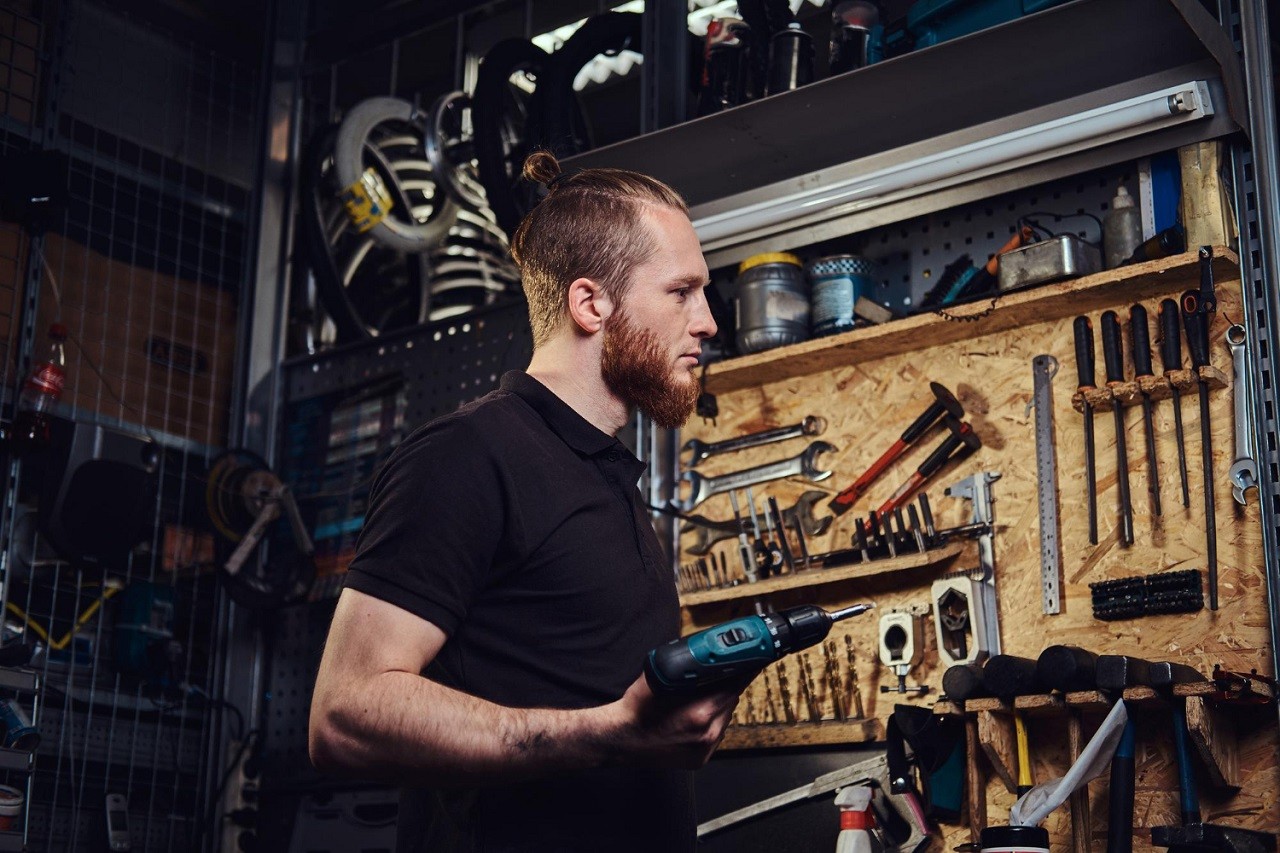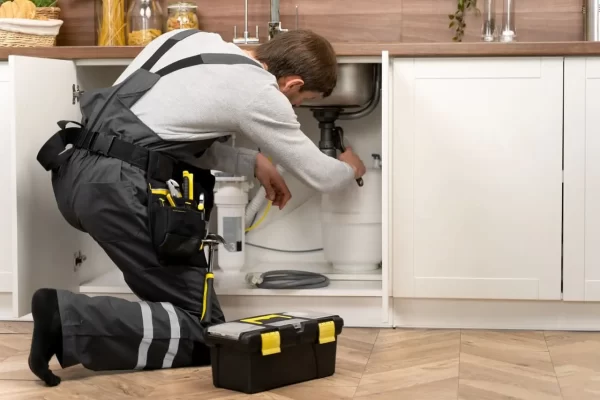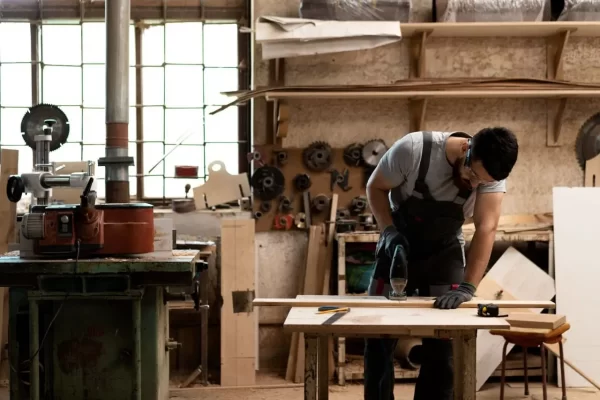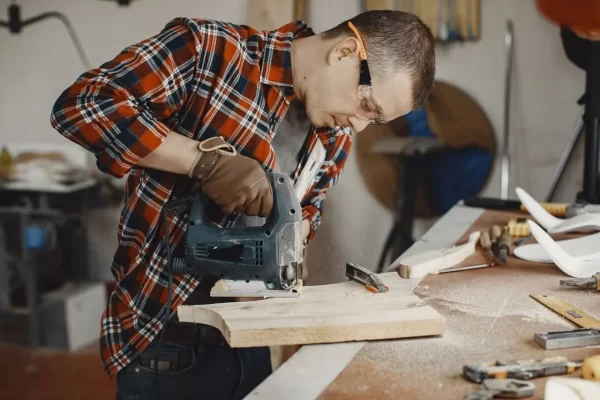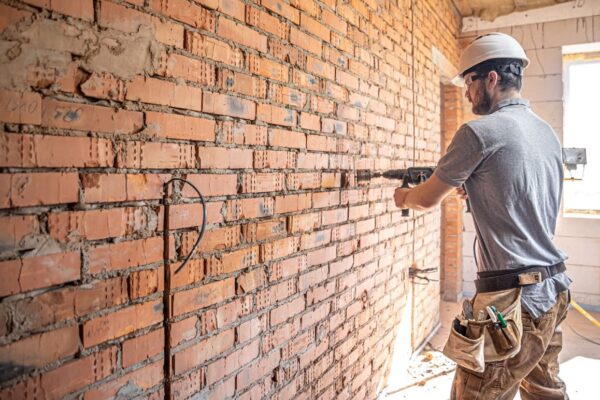Guide to Buying Power Tools
Most people who are handy get quite a few power tools over time.
You’ll often need to buy a power tool or two, whether you’re a DIY enthusiast looking to improve your skills, a new apprentice getting your first tool allowance, or just someone fixing up their home. Then a different power tool. Then another one, and then another one. …et cetera.
Still, there is a right and a wrong way to build a collection of power tools. You can save a lot of time, money, and work in the long run by being smart about how you buy power tools. Here are our best suggestions for how to build your collection of power tools in a smart way.
Choose a brand and stick to it.
One of the easiest and best things you can do for yourself in the long run is to pick a brand of tools you like and stick with it. This is especially true for cordless tools.
For one thing, it makes it a lot easier to buy accessories and keep them in good shape. But probably the biggest benefit is that batteries from the same brand can be used in most tools.
Some brands are better at sharing their batteries than others. Makita and Ozito both make batteries that are easy to share, but Bosch probably does the best job in this area. Their 18V “Power For All” battery runs about 40 different Bosch products and can be used with any tool made after 2007.
Sharing batteries makes it much faster and easier to keep all of your power tools charged and ready to go, especially if you buy your tools in a combo pack or buy a charger that can charge more than one battery at once. Batteries can be expensive, too, so reusing your old batteries in your new tools will save you a lot of money as your collection of power tools grows.
You will be interested on: Exploring the Best Power Tools Available in Dubai’s Hardware Stores
Don’t forget to consider the battery voltage as well.
You will also have to watch the voltages of the batteries. Even if they are the same brand, it makes sense that you shouldn’t put an 18v battery in a 24v power tool. In many cases, it will turn on and work, but it will always have a big effect on how well it works and will likely shorten the life of your tool over time.
For some jobs, you might need to buy a tool that is more powerful and, therefore, has a higher voltage. In general, though, it’s best to try to keep all of your tools at the same voltage. This makes sharing batteries even easier.
If you still want to try different brands but like how easy it is to share batteries, you can use buying corded tools as an excuse to try new things. This brings us to our next big tip: don’t always think that cordless is best.
Corded vs. Cordless tools – there’s more to it than you think.
It’s easy to see why cordless tools are so popular these days.
It’s nice not to have to worry about where the nearest plug-in is. There is no longer any chance of tripping over a wire. Most of the time, they’re smaller, which lets you get into tighter spaces. This makes cordless tools like the drill, which you use every day, a great choice.
But wired tools also have a lot to offer. Most of the time, tools that are wired will have more torque, which means they will have more power. They can run all day without running out of power, and you often get a better-quality tool than a smaller wireless one.
There are a few heavy-duty tools for which the corded version with more power is almost always better. Tools that need a lot of torque include reciprocating saws, table saws, hammer drills, and grinders. The cordless versions may not work as well, and the batteries will run out quickly.
Most of the time, the best way to decide between corded and cordless tools is to think about what you’ll be using them for. If you’re a do-it-yourselfer who only uses their tools once in a while, cordless tools will likely be more convenient for you.
You need to be honest with yourself about your power tool needs.
Do I need this? is a question you should ask yourself over and over when you’re at the hardware store looking at all the shiny, expensive toys. Do I really need it?
It might be tempting to always buy the most expensive model with all the bells and whistles, but do you really need all that for the job you’re doing? If you only do DIY projects on the weekends, a professional-level power tool with too much power and too many extras can get in the way.
Be realistic. Don’t buy a big, heavy-duty table saw if all you need to do is cut some thin plywood. Just buy that cordless drill to fix the hinges on the screen door. We’re not saying you should buy cheap, bad tools, but for most jobs around the house, a standard model will be fine. In fact, you might even have it easier.
The serious stuff is what tradespeople buy because they use it every day, from morning to night, on a wide variety of jobs. As a do-it-yourselfer, you should only buy top-of-the-line power tools if you find that you use them all the time. If you want to do a big project, like building your own house, it’s also a good idea to spend more on power tools.
Never buy generic-brand accessories or consumables.
This is another mistake that people often make with their power tools. Most people who do DIY projects are practical, so they usually don’t want to pay more for a brand-name accessory. Doesn’t the cheaper generic version do the same thing, but for less money?
Most of the time, this is a bad thing to do. Accessories and disposables that come with a brand name have been made and tested to work well with the tool. This is not true of generic tool accessories, which vary in quality and may damage your tool over time if they don’t fit right.
This tip might seem too easy, but trust us. Accessories and disposables from generic brands aren’t as good for your tools, and in the long run, you’ll probably spend more money fixing or replacing your broken power tools. Even though generics cost less up front, it’s not worth it.
Talk to people, read reviews, and watch what professionals buy.
There are so many options in the world today that it can be hard to choose a brand you can trust. Choosing won’t be as hard if you do some general research and ask your friends for their suggestions.
Online reviews are a quick way to find out what other people thought of a tool, but you should always pay attention to who wrote the review. Even though that power tool only got one star because an experienced builder found it useless and frustrating, it might be perfect for you as a beginner.
Still, reading reviews can be a lifesaver when it comes to avoiding nasty, low-quality power tools, especially ones that are cheap. If the price seems too good to be true, it probably is! Talking to your friends and coworkers about what they buy is always a good idea. You’ll usually get good information that’s easier to understand than a bunch of short reviews that disagree with each other.
Lastly, if you want to buy a good power tool, pay attention to what professionals use. Their needs are the most important, and if you keep seeing the same brand of power tools on construction sites, you can probably trust them to get the job done.
Tags : Building Material, Hardware Shop, Power Tools, Tool Accessories

